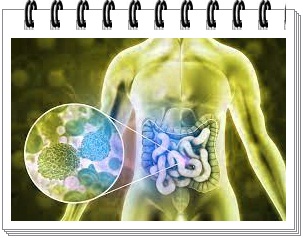Title: Shedding Light on Colorectal Cancer: Exploring Types, Symptoms, and Causes
Introduction. Colorectal cancer, a formidable adversary in the realm of oncology, poses a significant public health challenge globally. Despite advancements in screening, diagnosis, and treatment, it remains a leading cause of cancer-related morbidity and mortality. Understanding its diverse array of symptoms, types, and underlying causes is pivotal in the ongoing battle against this pervasive disease.
Unraveling the Symptoms. Colorectal cancer often presents with a spectrum of symptoms, though they may not always be apparent in its early stages. Recognizing these signs can facilitate prompt medical evaluation and intervention, potentially leading to improved outcomes.
- Changes in Bowel Habits: Persistent alterations in bowel habits, such as diarrhea, constipation, or changes in stool consistency, may signal colorectal cancer. Individuals may also experience a sense of incomplete bowel emptying or the urge to defecate without relief.
- Rectal Bleeding: Blood in the stool, characterized by bright red or dark-colored blood, may occur due to bleeding from the rectum or lower gastrointestinal tract. While rectal bleeding can stem from various benign conditions, it should prompt further evaluation, especially in individuals at risk for colorectal cancer.
- Abdominal Discomfort: Persistent abdominal pain, cramping, bloating, or discomfort, particularly in the lower abdomen, may indicate colorectal cancer. This discomfort may be vague or localized and may worsen with certain activities or dietary factors.
- Unexplained Weight Loss: Sudden and unexplained weight loss, accompanied by loss of appetite, fatigue, or weakness, can be indicative of advanced colorectal cancer. Cancer-related metabolic changes may contribute to unintentional weight loss over time.
Decoding the Causes. Colorectal cancer arises from a complex interplay of genetic, environmental, dietary, and lifestyle factors. While some risk factors are beyond individual control, awareness empowers individuals to adopt proactive measures to reduce their risk.
- Age: Advancing age is the most significant risk factor for colorectal cancer, with the majority of cases diagnosed in individuals over the age of 50. However, colorectal cancer can occur at any age, emphasizing the importance of early screening and vigilance.
- Family History and Genetics: Individuals with a family history of colorectal cancer or certain hereditary conditions, such as familial adenomatous polyposis (FAP) or Lynch syndrome, face an elevated risk of developing the disease. Inherited genetic mutations can predispose individuals to colorectal cancer at a younger age.
- Dietary and Lifestyle Factors: A diet high in red and processed meats, saturated fats, and low in fiber, fruits, and vegetables may increase the risk of colorectal cancer. Additionally, sedentary lifestyle habits, obesity, excessive alcohol consumption, and tobacco use have been linked to heightened colorectal cancer risk.
- Inflammatory Bowel Disease (IBD): Chronic inflammatory conditions of the colon, such as ulcerative colitis and Crohn's disease, are associated with an increased risk of colorectal cancer. Inflammation and ongoing tissue damage in the colon can predispose individuals to malignant transformation over time.
Unveiling the Types. Colorectal cancer encompasses various types, each with unique characteristics and implications for treatment and prognosis. The two primary categories are colon cancer and rectal cancer, distinguished by their anatomical location within the gastrointestinal tract.
- Colon Cancer.Colon cancer originates in the colon, the large intestine's primary portion, and typically begins as a growth or polyp on the inner lining of the colon. Adenocarcinoma is the most common subtype of colon cancer, arising from the glandular cells lining the colon's interior.
- Rectal Cancer.Rectal cancer affects the rectum, the terminal portion of the large intestine preceding the anus. Like colon cancer, rectal cancer usually arises from glandular cells lining the rectum's inner surface. However, due to differences in anatomy and treatment approaches, rectal cancer is considered distinct from colon cancer.
How to Recover
- Educate Yourself: Knowledge empowers. Understanding your diagnosis, treatment options, and potential side effects is crucial. Engage with healthcare providers, ask questions, and seek reliable sources of information. By being informed, you can actively participate in decisions regarding your care and feel more in control of your journey.
- Embrace a Healthy Lifestyle: Nutrition and exercise play pivotal roles in recovery. Adopt a balanced diet rich in fruits, vegetables, whole grains, and lean proteins to support your body's healing process. Regular physical activity not only boosts energy levels but also enhances overall well-being. Consult with a healthcare professional to develop a personalized plan tailored to your needs and abilities.
- Prioritize Mental Health: The emotional toll of a cancer diagnosis can be profound. It's essential to prioritize your mental health throughout the recovery journey. Seek support from therapists, counselors, or support groups specializing in cancer care. Practice relaxation techniques such as mindfulness, meditation, or deep breathing to manage stress and anxiety effectively.
- Establish a Strong Support Network: You don't have to face colorectal cancer alone. Lean on friends, family members, and fellow survivors for encouragement and support. Joining support groups or online communities can provide a sense of camaraderie and understanding. Open communication with loved ones fosters a supportive environment where you can freely express your feelings and concerns.
- Follow Medical Recommendations: Adherence to medical recommendations is paramount for successful recovery. Attend all scheduled appointments, follow medication regimens, and adhere to post-treatment guidelines provided by your healthcare team. Be vigilant for any signs of complications or recurrence and promptly report them to your medical provider.
- Engage in Survivorship Programs: Many hospitals and cancer centers offer survivorship programs tailored to the unique needs of cancer survivors. These programs provide resources, education, and support to help you navigate life after cancer treatment. Take advantage of these services to optimize your recovery and transition back to normalcy.
- Cultivate Positivity and Resilience:Maintaining a positive outlook and cultivating resilience are essential ingredients for overcoming colorectal cancer. Celebrate small victories, focus on the present moment, and visualize a future filled with hope and possibility. Embrace setbacks as opportunities for growth and learning, and never underestimate the strength of the human spirit.
Conclusion.
Recovering from colorectal cancer is a multifaceted journey that requires perseverance,courage, and support. By arming yourself with knowledge, adopting a healthy lifestyle, prioritizing mental health, and cultivating a strong support network, you can navigate through treatment and emerge stronger on the other side. Remember, you are not defined by your diagnosis but by the resilience and determination with which you face it.

